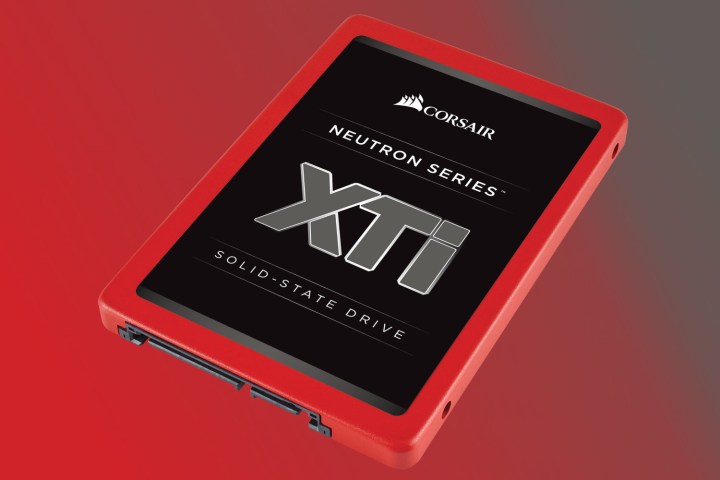
The Neutron Series XTi is squarely aimed at users who require large amounts of storage that can be accessed quickly and reliably. Corsair notes that video game enthusiasts and anyone who works with large video files will appreciate the capabilities of the new line of SSDs.
The range makes full use of a quad-core controller, allowing for impressive speed stats and low command latency. Corsair claims that the Neutron Series XTi can reach transfer speeds of up to 560MB/s, and sequential write speeds of up to 540MB/s.
These SSDs are also reportedly capable of delivering 4K random reads at a rate of 100K IOPS, and 4K random writes at a rate of 90K IOPS. As a result of this blistering performance, the manufacturer is claiming that the line “effectively saturates” the SATA 6Gbp/s interface.
The drives also offer plenty of protection against data loss, with end-to-end data path protection that minimizes the possibility of corruption from the host to the NAND gate. Power loss protection and advanced SmartFlush and GuaranteedFlush technologies also help ensure that the Neutron Series XTi can deliver professional-grade reliability and peace of mind.
The line is also set to offer standout efficiency, with power consumption as much as 95 percent less than standard HDDs.
The Neutron Series XTi is available now, with the 240GB drive priced at $90, the 480GB drive priced at $160, and the 960GB priced at $330. The larger 1920GB option is set to launch at a later time, but its pricing has not yet been announced.


